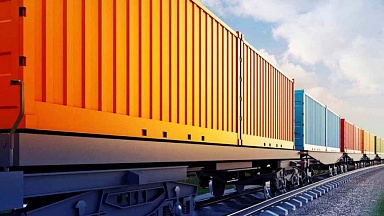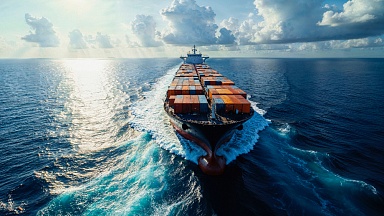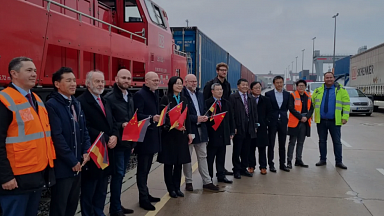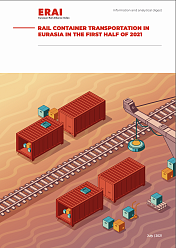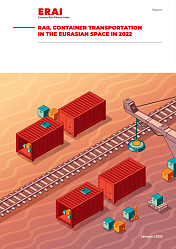«This is a shipment that is usually on the plane. That is much faster, but it costs a lot, especially now the air prices have increased. So, the shipper wanted to experiment with rail transport. The wines are currently one the way to two different locations in Japan, and everything goes according to plan!»
Tailor-made solutions
Rail Bridge Cargo is a Dutch independent Rail logistics company, offering multimodal transport options. For each of these transport options, it looks for tailor-made solutions. «For example, the Beaujolais wines needed to be transported in a shock-proof manner, kept at a certain temperature and arrive on time.». This project was organized by Rail Bridge Cargo in close cooperation with NSR — New Silk Road Intermodal and Nissin Logistics.
In order to realise the temperature requirement, Rail Bridge Cargo opted for 40ft containers isolated with thermo blankets. «The Beaujolais committee decided that the wines should not dip under 1 degree. For this season, the blankets proved to be enough. But in winter you may need a reefer container.»
The journey is not a complete train line. The wines were moved by truck from the Beaujolais region to Lyon Rail station, where they were put on the train. From this French hub they made the long train journey to Yiwu, and then Shanghai. In this Chinese port they were transshipped on vessels, to cross the Japanese sea to Tokyo and Osaka: the final destinations.
«The shipper did have some doubts before it chose this solution». «The blankets were a good solution, as reefer
containers are more expensive, and more difficult to organize. There is currently a shortage of reefer containers on the market, as there is an increasing demand for food and beverages from Europe in China. Wines, meat, pharmaceuticals, these are all transported by conditioned units.»
Compromises
Moreover, the multimodal journey takes a lot longer than the journey by air, average 26 days, the logistics expert explains. «The consignee did compromise on the lead time, but at the same time saved costs. And it contributed to a reduction in CO2 emissions. This was increasingly important for the consignee in Japan as for many companies these days.»
Rail Bridge Cargo’s mission is to create a healthier environment by using rail cargo as a way to transport goods and make it an irreplaceable transport method for companies. Compared to air freight, rail freight produces 27 times times less C02 emissions p/tonne km. «This makes that we not only transport great wine, but also contribute to our global C02 targets. We are sure this will make the taste of the wine even better.»

